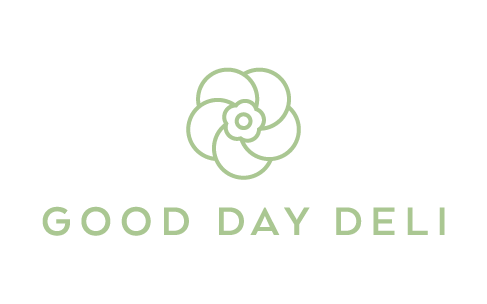What’s the difference between Speciality Coffee vs Commercial Coffee?
At Good Day Deli we are coffee fanatics and we know that our customers are too, travelling from far and wide for the perfect flat white made with fresh, aromatic West Cork Coffee. The coffee business is booming and has never seen such a demand before. At GDD we only use speciality coffee, which is coffee that has been graded and tested by the Speciality Coffee Association of Europe (SCA).
Commercial grade coffee has fewer quality checks and it is often a blend of different coffees and origins. Speciality coffee offers far more choice and information about the coffee being used, one can carefully select their coffee based on the process, the region and the roast. Speciality coffee is traceable through each process back to the farm it came from and therefore is usually far more sustainable. Although commercial coffee is cheaper than speciality, this is because with speciality coffee you are paying for great taste and quality, hard work and living wages of the producers. Furthermore, the individual and depth of flavour of speciality coffee is unbeatable.
Our Supplier, West Cork Coffee
At the moment we have a beautiful Ethiopian coffee from Mustefa Abakeno on the Beshadu farm in Western Ethiopia, roasted by Tony in West Cork Coffee. This is an organic, washed coffee with bright and vibrant acidity and notes of grapefruit, orange, caramelised brown sugar and tamarind spice. It is truly delicious and I have to try and hold back from having several cups a day!
Environmental Impact of Commercial Grade Coffee
Unfortunately, while we are all getting our buzz on from a delicious cup of joe, the massive demand for commercial grade coffee has damaged our environment to a huge degree. Understanding the relationship between the environment, communities and coffee plants are essential to make thoughtful and considerate choices for your morning fuel and the world we live in.
Coffee beans are the seeds inside the cherries on the cofea plant and these marvellous evergreen trees are native to tropical countries - the home of the last remaining tropical rainforests. Coffee is a $10 billion industry and is this area’s second largest export commodity after palm oil. With surging demand, the practices used to cultivate these plants at a large scale are detrimental to these precious ecosystems and the local communities who rely on them for survival. Due to this massive market, farmers have no choice but to cut through the delicate rainforests to plant more coffee trees and increase their yield. The chemical buildup and loss of shade in the rainforest creates detrimental ecological effects such as soil erosion and chemical fertiliser run-off; polluting land and water, resulting in barren land and the death of much forest and aquatic life. Furthermore, according to the Food and Agricultural Organisation of the United Nations, each cup of high-yield commercial coffee requires 140 litres of water to produce.
Mass production of coffee is not only severely damaging to our ecosystem but also to the communities in the countries where this coffee is produced. According to conservation.org, 120 million people rely on coffee for their livelihoods. Exploitation of these local farmers and communities is rampant to keep the prices of coffee “low”, thus ensuing in desperation to produce more coffee to try to earn a profit. This manifests itself in further deforestation, child labour and exploitation and the use of low-quality cheap pesticides which are harmful to the ecosystem. The demand for coffee continues to grow, importantly in countries like China and India which historically would favour tea. The destruction of the rainforests releases carbon into the environment, directly and heavily contributing to climate change, which in turn makes the conditions in these coffee growing countries more adverse.
Luckily, as the market for coffee surges, so does the human interest in protecting these ecosystems and their inhabitants and the focus on sustainable coffee production has increased tenfold and revolutionised the industry. You can wipe your tears away knowing that ethical and sustainable coffee production is not only possible, but it’s booming! At Good Day Deli, our focus with coffee is that it’s fairtrade, delicious, sustainable and actively improving the lives of the dedicated farmers and communities who grow it.
Our supplier, West Cork Coffee, ticks all of these boxes. They are dedicated to working with the WCR (World Coffee Research Organisation) and donate a % of the costs of the beans to sustaining the coffee supply chain and to enrich the livelihoods of the producers and also works often with women only producers. The beautiful speciality coffee is roasted to perfection by Tony at his roastery in Inishannon, West Cork and delivered to us fresh each week. As mentioned earlier, we currently have a stunning, bright washed Ethiopian coffee on the bar at the moment. Mustefa Abakeno owns 18 hectares of land and a wet mill near Agaro in the Jimma area of West Ethiopia. A lack of water in the area has informed Abakeno’s processes at the farm, allowing the cherries to ferment only for a short time and then moving them to a drying bed - innovation in the face of adversity! At the Beshadu farm, Mustefa also processes coffee from his neighbours’ farms and has recently registered as an exporter so he can sell directly to buyers!
As with most issues that arise around sustainability, the prospect of what your single cup of coffee can be contributing to is extremely daunting. To put your mind at ease, choose fairtrade coffee from a trusted speciality producer like West Cork Coffee so you can be sure that sustainable practices are in place and the quality of life for the producers is at the fore. See you soon for a guilt-free latte!



